www.aljazeerah.info
News, September 2015
Archives
Mission & Name
Conflict Terminology
Editorials
Gaza Holocaust
Gulf War
Isdood
Islam
News
News Photos
Opinion Editorials
US Foreign Policy (Dr. El-Najjar's Articles)
www.aljazeerah.info
|
Editorial Note: The following news reports are summaries from original sources. They may also include corrections of Arabic names and political terminology. Comments are in parentheses. |
Egyptian Flooding of Gaza Border With Sea Water an Implementation of an Israeli Plan
September 29, 2015
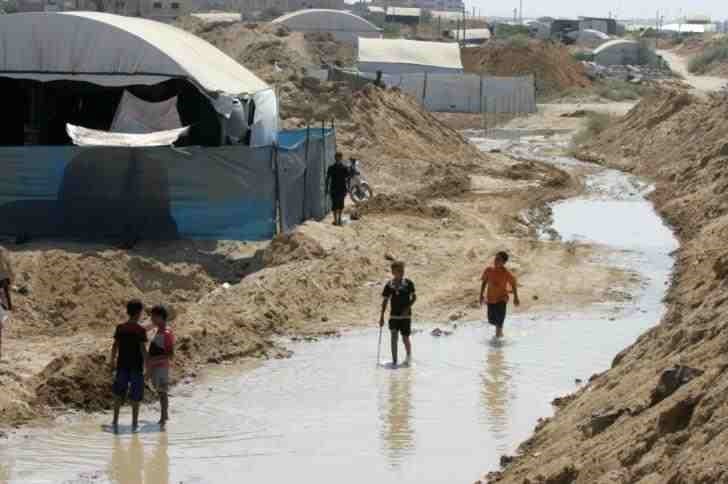 |
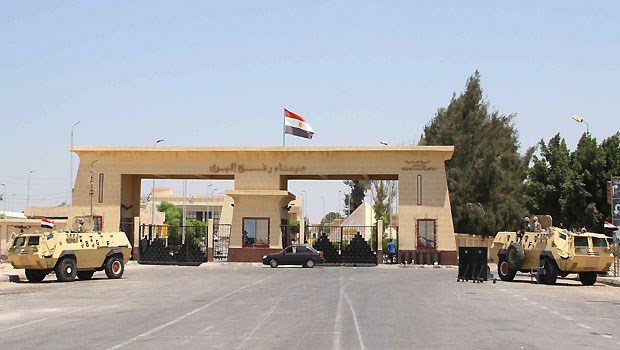 |
| Palestinian children walking in the Rafah border area, which was flooded by sea water by the Egyptian army in a attempt to destroy the border tunnels and keep Gaza in total siege. | Rafah Gate: The Egyptian border crossing with Gaza Strip has been closed most of the time since Sisi has become president of Egypt. Thus, Palestinians are kept under tight siege. |
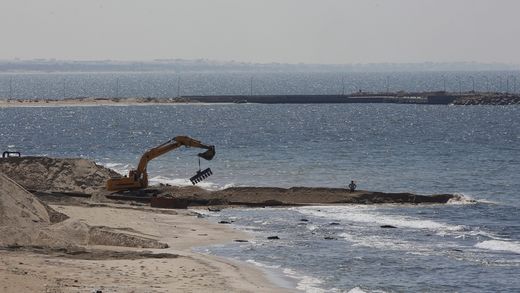 |
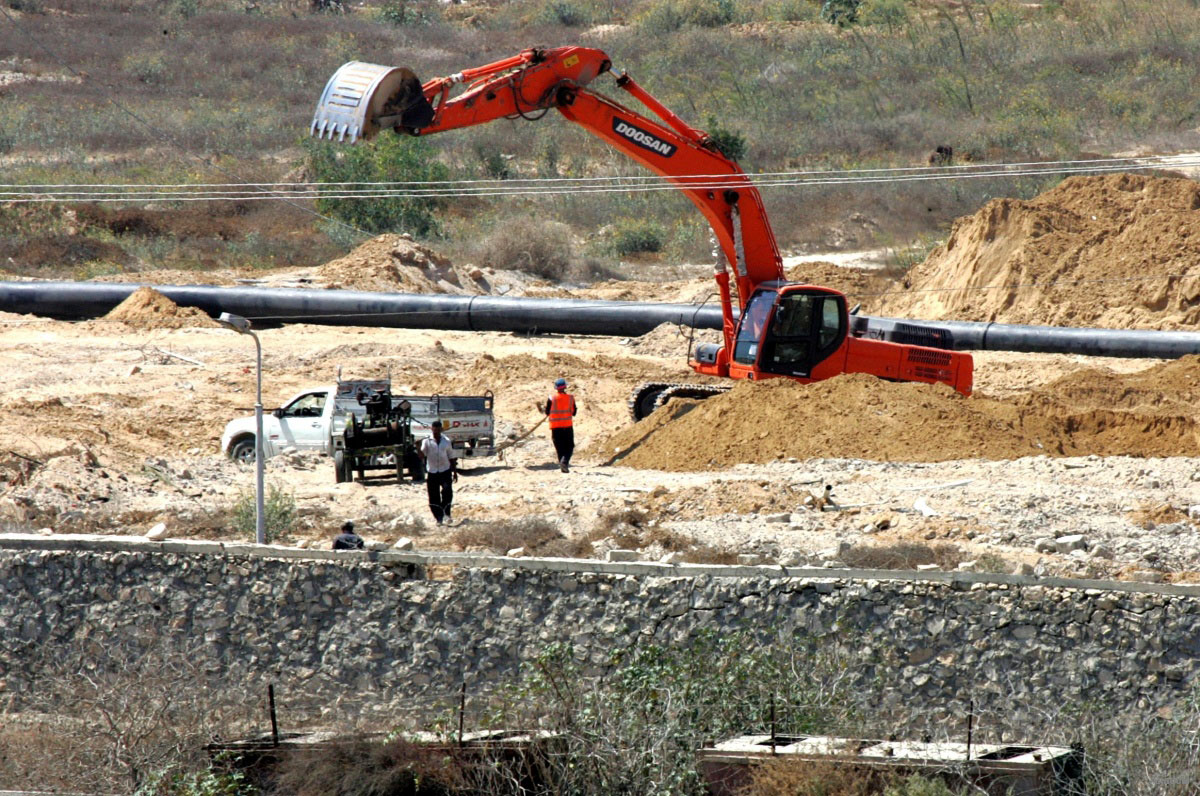 |
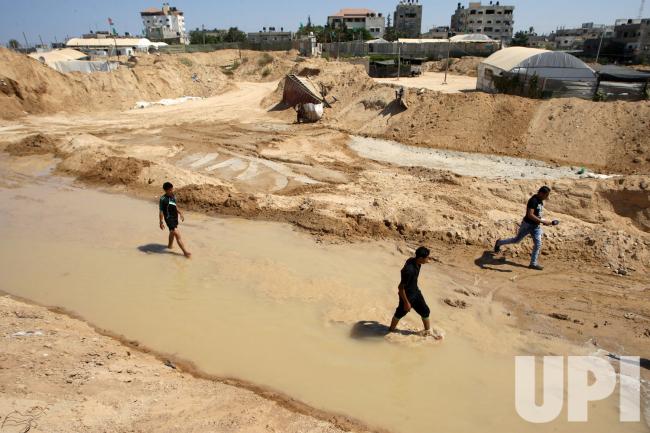 |
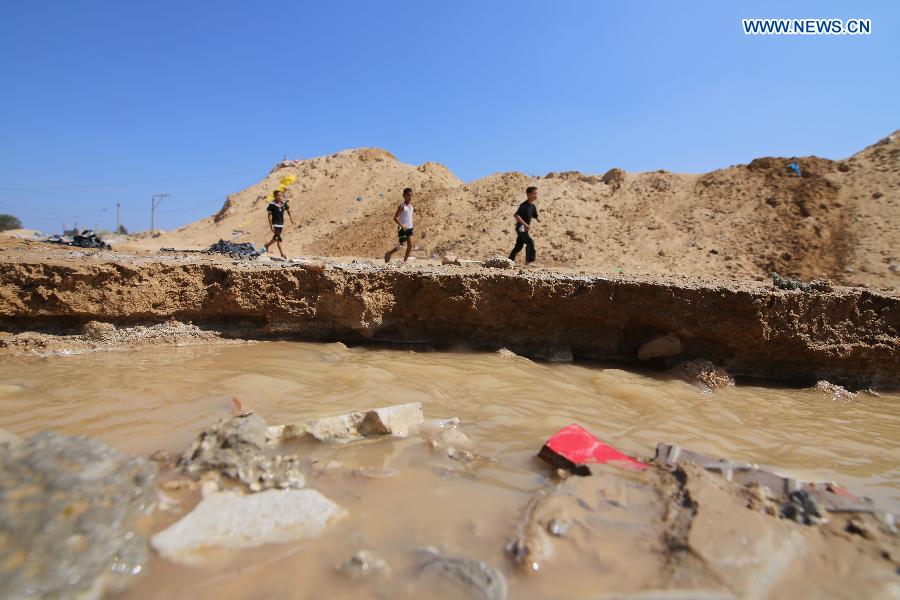 |
Stranded Palestinians call for opening Rafah crossing
September 29, 2015 RAFAH, (PIC)--
Palestinians stranded in a number of countries, including Egypt, have
called on Egyptian authorities to open the Rafah border crossing and to
allow their return to Gaza.
The stranded Palestinians, including
patients and students, issued a statement appealing to the Egyptian
president and head of his General Intelligence to help them return to
their families in Gaza Strip through the Rafah crossing especially that
“the majority of them have run out of money.”
"We were obliged to
spend Eid al-Adha away from our families as we have been stranded at the
Egyptian side of the crossing for more than two months," a statement
released on the stranded Palestinians’ behalf said.
"We are
surprised and concerned at the silence of the Palestinian ambassador in
Egypt towards our suffering," the statement reads.
The
Palestinians called on the concerned authorities to immediately
intervene for the opening of Rafah crossing.
Since the beginning
of 2015, the Rafah crossing has been closed for 251 days while it was
opened partially only for 19 days. Thus, thousands of Gazans were
deprived of their right to travel for education or medical treatment
abroad.
"Sisi's sea"... part of Israeli scheme to turn Gaza into an island (report)
September 29, 2015 RAFAH, (PIC)--
"Sisi’s sea" as referred to by activists on social network pages in
their talk about the waterway that the Egyptian military is digging on
the borders with Gaza Strip, is not an "Egyptian-planned sea";
basically, it is the first part of an old Israeli scheme to turn Gaza
into a "hostile island", separating it geographically and isolating it
in the middle of water.
Implementing this scheme on the ground,
however, was postponed several times without obvious reasons.
It
was found in the archive of 2004 of "Yediot Ahronot" Hebrew newspaper
that the Israeli Ministry of War has announced a tender between
companies on the project of drilling a buffering-water canal along the
border with Egypt or the so-called Philadelphia line, to meet the
security assessments that pointed at the time to the accelerated pace of
smuggling weapons from Sinai and to the increasing security risks in the
long term because of that, and to the risk of digging more tunnels if
the borders remained open.
The newspaper quoted Israeli officials
as saying that the canal to be dug stretches 4 kilometers long and
ranges between 15 to 25 meters depth. But implementing the canal will
put financial burdens on the state treasury and will cause many security
risks during the implementation of the project. Therefore; there must be
teams from the Israeli army allocated to follow up the work and to keep
the Israeli companies working on the project safe, the paper added.
Israeli scheme
Hence it is clear that the current Egyptian project is only part of
the Israeli scheme that was postponed until finding an "ally" from the
Egyptian authority to bear the burden. But the Zionist project is not
limited to isolate Gaza from Egypt only; it also extends to the border
between the Gaza Strip and the occupied Palestinian territories in 1948.
In this context; "The Marker", an economic Hebrew newspaper,
confirmed in a report in July 2014 that the Israeli Ministry of War had
completed a comprehensive scheme on the project since 2001, developed by
a number of experts, including Professor Joseph Hazor, head of the
geology department at Ben-Gurion University and his colleague, Professor
Haim Gabritzmann, hydrology expert at the Hebrew University in
Jerusalem.
The scheme developed by experts was described as 100%
effective as it guarantees the removal of potential threat of tunnels
between Gaza and the 1948 occupied territories and between Egypt and
Gaza.
The researchers conducted studies and experiments in the
areas to the south of 1948 occupied Palestine for more than 4 years
costing the Department of Army more than 300,000 dollars. As a result
they have founded a mechanism to drench the tunnels with groundwater
which guarantees that any future tunnels will collapse by themselves.
The experiments claimed a 90% success rate.
The tunnels used in
the last war on Gaza revived the project.
In spite of the fact that the Israeli security services are aware of
the existence of tunnels between Gaza Strip and the Egyptian borders,
yet they put the project on hold, until the last war broke out against
the Gaza Strip in the summer of 2014 in which the Israeli occupation
army was astounded by the huge number of tunnels the Palestinian
resistance had used, resulting in many moral and material damage and
loss of life in the Israeli military ranks.
Israel then began to
study the project anew, and it seemed that there were communications
with the Egyptian authority to cooperate in implementing the project.
After less than two months of the end of the last Israeli aggression
on Gaza, the Egyptian president Abdel Fattah Sisi announced the
beginning of implementing a scheme of "hollowing out" the population of
the Egyptian city of Rafah, a prelude to the establishment of the buffer
zone, which includes the water canal that ensures separating Gaza from
the Egyptian Rafah city.
Here a question arises: Will Israel
carry out its part of the scheme and turn Gaza into an island? 28-9-2015
10:42 PM
***
Rafah farmers watch in horror as Egypt floods Gaza tunnels -
Al-Monitor: the Pulse of the Middle East
Author: Mohammed Othman
September 25, 2015
RAFAH, Gaza Strip —
The Egyptian army has been pumping large volumes of Mediterranean Sea waters since Sept. 17 into the buffer zone that it began building two years ago, along 14 kilometers of the Palestinian-Egyptian border. The move is the latest attempt to destroy the tunnels dug by Palestinians under the city of Rafah over the years of the Israeli blockade.
Summary⎙ Print Experts say the effects of the Egyptian army pumping seawater into the tunnels under Rafah will be disastrous for the Palestinian economy and agriculture. AuthorMohammed OthmanPosted September 25, 2015 TranslatorKamal Fayad
The operation is causing concern for the Rafah border area inhabitants, who say that it will affect their lives there. Farmer Nayef Abu Shallouf, who owns three acres of land less than 300 meters from the Egyptian border, said all the salt water will leave his land briny and destroy his crops. He told Al-Monitor, “In addition to damaging the soil, sinkholes will appear wherever tunnels were dug, with collapses occurring sooner or later.”
Nasser Abdullah in Rafah’s al-Salam neighborhood, also close to the Egyptian border, expressed deep concerns about sinkholes that could open at any time under his home, 500 meters from the border. He explained to Al-Monitor, “The tunnels run under our homes. Water flooding these tunnels will lead to their collapse and the destruction of our homes. Their foundations will be gradually degraded by salt water, even if they remained standing.”
Abdel Majid Nassar, a professor of environmental engineering at the Islamic University of Gaza, stated that the whole area will be transformed into marshland as the soil becomes saturated with water and liquefied, with the water seeping into subterranean aquifers.
He explained to Al-Monitor, “Afterward, collapses will occur, similar to the ones that we began feeling today, particularly considering that Rafah’s underground is crisscrossed with large numbers of tunnels that extend for great distances under the city. As a result, the coming days will bring sudden landslides throughout large swaths of land due to the destabilization of the area’s topsoil.”
Nassar said that the foundations of homes close to the border will surely be affected, with those houses suffering damage and falling apart. He also explained that the pumping of seawater will have disastrous effects on Rafah’s agriculture and aquifers, saying, “The water will also seep toward the surface and result in the salinification of topsoil, destroying agriculture there for years. Furthermore, as the topsoil liquefies, salt water will seep into the upper layers of underground aquifers, used by local inhabitants for irrigation and in homes.”
He pointed out that even if the Egyptian army stops pumping seawater in the coming months, removing salt from the topsoil and fixing the ensuing damage would take years and large amounts of fresh water.
The seawater flooding will also have ruinous effects on the Palestinian economy, particularly in the city of Rafah, by damaging local crops.
Economic analyst Moein Rajab told Al-Monitor that the pumping of salt water into the tunnels will affect agriculture and render farmlands unproductive as salt levels rise. As such, large tracts of Palestinian agricultural land that stretches along the Egyptian border will be made useless, leading to a marked decrease in agricultural production.
Rajab added that soon after, the area’s inhabitants would be forced to leave as the topsoil is destabilized, further exacerbating the current Gaza Strip housing crisis. He explained, “Due to the fact that houses are so close to the border — mere hundreds of meters away — homes will become threatened with demolition or damaged to the point of being unlivable, with their foundations buckling as the earth liquefies. As a result, inhabitants will be forced to abandon their homes, which will add problems and further exacerbate the housing crisis engendered by the scarcity of building materials, blockade and pitiable economic situation.”
It seems that Egypt's unilateral move to destroy the tunnels has already had deleterious environmental and economic repercussions for the Gaza Strip no matter how long it goes on.
***
Will Rabin’s dream of Gaza being swallowed by the sea come true?
Khalid Omar
Monday, 21 September 2015 16:38
The seemingly eternal Israeli-Palestinian conflict, especially in Gaza, which poses a continuous headache for the occupation, pushed the late Israeli Prime Minister Yitzhak Rabin to say in 1992, “I wish I could wake up one day and find that Gaza has sunk into the sea.”
However, the Gaza Strip did not sink into the sea and the situation is worse than it was during Rabin’s day, both for Israel and the Palestinians. Despite this, Rabin’s dream has been recalled by Palestinians on social networking sites since the Egyptian army began flooding the Gaza border with sea water.
Early on 11 September, the Egyptians started to pump large amounts of sea water into pipes that were extended across the border between the Gaza Strip and Egypt in an attempt to destroy the smuggling tunnels by flooding them. The Egyptian authorities began the move towards a tunnel-free zone along the border last October, specifically in the city of Rafah. The zone extends for two kilometres and was all done in the name of “combatting terrorism”.
The roots of the Gaza tragedy date back to before the creation of Israel in 1948, and the people of Gaza had no rights when they were under Egyptian sovereignty after that. At the time, the Strip was isolated from its Arab surroundings. This was followed by the June 1967 war, which caused more harm to the Gaza Strip and, of course, the territory has been isolated from the world for more than nine years as a result of the Israeli-imposed blockade. The Egyptians have played a role in this by frequent and lengthy closures of the only border crossing at Rafah.
The Israeli occupation tried to embrace the Palestinians in Gaza after the 1967 war and started to tempt them by supporting the local economy and linking it to Israel’s. The government published Arabic language books and distributed them in Gaza, and presented films translated into Arabic which tried to promote a connection between the people of Gaza and Israel.
Now, Gaza finds itself in a similar predicament being torn between Hamas and Fatah, with the political split dominating since Hamas won the Palestinian elections in 2006. The Islamic movement itself is stuck between reconciliation efforts and the painfully slow reconstruction process following the destruction wrought by Israel’s three offensives against the enclave since 2008. There is a suffocating financial crisis and political isolation from the Arab world and international community, starting with Egypt, Gaza’s southern gateway and the mediator between Hamas and both Israel and Fatah.
“Contacts are underway with Cairo to halt pumping seawater into Rafah,” Hamas spokesperson Sami Abu Zuhri said yesterday, “as such measures are objectionable and pose a threat to groundwater as well as to a large number of homes on the Palestinian side.”
The Palestine Water Authority in the Gaza Strip made a statement on Saturday saying that the Egyptian army’s pumping of sea water is causing subsidence, subjecting “homes close to the area to danger.” It also noted that the sea water has caused an increase in the salinity of the soil, making it “unsuitable for agriculture.” The authority added that pumping water into canals along the border destroys Palestinian water and food security and “empties the area of its residents.”
Hamas gained an ally in Egypt by means of its support for the rise of the Muslim Brotherhood during and after the 2011 Egyptian revolution. This ally was lost when President Mohamed Morsi was overthrown by a military coup in July 2013.
The economic and political damage caused by the deterioration of the relationship between Hamas and Egypt has since become more obvious. Campaigns were launched by the coup government to restrict the tunnel economy in Gaza; buffer zones were established; and severe restrictions were imposed on the borders. All of this combined to escalate the poor economic and humanitarian conditions in the Gaza Strip.
Despite Hamas’s rejection of Egyptian President Abdel Fattah Al-Sisi’s policies, it was forced, given its geographical and political isolation, to address the leadership and intelligence agencies in Cairo and express the movement’s willingness to meet and discuss cooperation with regards to border security and the restoration of relations. This has been especially important since Egypt was the mediator between Hamas and the Israelis for the current ceasefire agreements agreed after Israel’s offensive last year.
Hamas has not only highlighted repeatedly its interest in restoring its relationship with Egypt, but also emphasised its common security fears and its commitment to crack down on Salafi jihadist organisations that are spreading systematically across the Sinai Peninsula and, in terms of ideology without an organisational structure, in the Gaza Strip.
Those observing the situation do not believe there are likely to be signs of change in Egypt’s policies any time soon, despite the fact that there are talks taking place under Saudi auspices in order to reduce the tension in the relationship. This is evidenced by the fact that the Rafah crossing was only open for 18 days between January and July this year. Although it was opened for four days in August, the small steps taken by the government in Cairo have not reached the level of it reconsidering its policy of isolating Gaza.
The mysterious disappearance of four Palestinians said to have been affiliated with Al-Qassam Brigades, the military wing of Hamas, in Sinai last month, has caused more distrust between the two sides. Hamas believes that this was an operation orchestrated by the Egyptian government. There has been no word yet on the fate of the four.
Translated from Al-Khaleej Online, 20 September 2015.
***
If Gaza becomes uninhabitable, it is Israel's responsibility
By Khalid Amayreh in occupied Palestine
PIC --
The Gaza Strip, ravaged by devastating wars of aggression by Israel,
could become uninhabitable for residents within just five years, a
United Nations development agency warned this week.
"The social,
health and security-related ramifications of the high population density
and overcrowding are among the factors that may render Gaza un-livable
by 2020, said the report.
Gaza, a tiny enclave of just 362
square kilometers (about 225 square miles) squeezed between the
apartheid state of Israel, Egypt and the Mediterranean Sea that is home
to some 1.8 million Palestinians, counts one of the highest population
densities in the world.
The manifestly hermetic blockade
imposed on the coastal enclave for close to two decades effectively
"ravaged the already debilitated infrastructure of Gaza, shattered its
productive base, left no time for meaningful reconstruction or economic
recovery and impoverished the Palestinian population in Gaza," the
report said.
The report added that "Short of ending the
blockade, donor aid... will not reverse the ongoing de-development and
impoverishment in Gaza."
Israel's responsibility
There
is no doubt that Israel bears most of the blame for this gigantic
disaster facing the Gaza Strip. Israel has been in tight control of Gaza
since 1967. Even today, nine years after its symbolic withdrawal from
the coastal enclave, Israel continues to control Gaza border-crossings,
territorial waters, skies. Even poor Gaza fishermen who venture a few
kilometers into the sea are often shot at and injured or killed by
Israeli navy patrols.
Since 2009, Israel carried out three major
wars of aggression on the already impoverished Gaza Strip, killing and
maiming tens of thousands of people, mostly innocent civilians.
The three wars also destroyed or seriously damaged as many as a hundred
thousand homes and displaced more than 750,000 civilians. The UN and
other international bodies described Israeli military operations in Gaza
as war crimes or crimes against humanity.
According to the UN
report, as many as 247 factories and 300 commercial centers were fully
or partially destroyed, and Gaza's only power station sustained severe
damage.
The overall situation had already been tragic even
before the war.
Power supply covered only 40 percent of demand
in the Strip. With regard to water supplies, the report pointed out that
that up to 95 percent of water from coastal aquifers - Gazans main
source of freshwater - was considered unsafe to drink.
Unemployment in Gaza meanwhile reached 44 percent - the highest level on
record - hitting young women especially hard, leaving more than eight
out of 10 women out of work. Predictably, the phenomenally high
unemployment seriously affected people's ability to secure food.
The report pointed out that a full 72 percent of all households in Gaza
are struggling with food insecurity. The number of Palestinian refugees
who rely entirely on food distribution from UN agency has skyrocketed
from 72,000 in 2000 to 868,000 by last May.
The catastrophic
situation in Gaza is made even worse by the Egyptian blockade of the
Strip whereby the Rafah border terminal, Gaza's only conduit to the
outside world is nearly permanently shut off, ostensibly to punish and
torment Gazans for supporting Hamas.
Indeed, many Palestinians
have come to believe that the "evil trio" of Israel, the Sissi Junta and
the Ramallah regime, are coordinating their respective measures against
Gaza for the express purpose of creating an implosion throughout the
coastal enclave.
Each of the three parties hopes to achieve a
specific goal. The PLO would get rid of an implacable political opponent
while the Sissi regime would vent its failure to eradicate an
increasingly bloody insurrection against the anti-Islamist coup. As to
the Israeli goal, it is to eradicate the last remaining obstacle
impeding the liquidation of the Palestinian cause under the false rubric
of a peace process which virtually has no substance.
It is also
widely believed that the PLO regime in Ramallah is conniving or openly
collaborating with Egypt’s military junta to keep up the pressure on
Gaza for the purpose of forcing Gazans to rise up against Hamas, the
PLO's main political rival.
The dire situation in the Gaza Strip
is getting even direr by the snail-slow pace of reconstruction, mainly
due to the Israeli policy of restricting the entry of building materials
to the Strip.
This means that hundreds of thousands of Gaza
civilians will remain homeless and without shelters, with all the
humanitarian and security ramifications entailed.
Another
refugee crisis looming?
There is no doubt that the world could
soon face another huge wave of refugees from the Middle East,
specifically from the Gaza Strip, if the international community,
especially Europe and the US, didn't take immediate proactive measures
to stop the menacingly deteriorating living conditions in the coastal
Strip.
Israel, whether we like it or not, is the number-1
villain because it is still the occupying power in the Gaza Strip
according to international law. The key to the rehabilitation of Gaza is
decidedly in Israel's hands. Hence, it is imperative that the
international community exert a meaningful pressure, not just words, on
Israel now in order to make the Israeli government responsive to the
urgent needs of some 2 million Gazans who have chosen life over death
and are opting to cling to their ancestral homeland rather than embark
on a precarious journey to the shores of Europe
Yes, the people
of Gaza, like the rest of Palestinians, don't want to leave their
homeland. They are not even looking for a better life in Germany or
other European countries.
However, the enduring harsh blockade
imposed on Gaza by Israel and Egypt, which is making Gaza increasingly
uninhabitable, might very well produce inevitable tragic consequences
which could be similar or worse than the phantasmagoric refugee crisis
being played out on our TV screens every evening.
The world has
a few years to avert the next tragedy. So, to the chief powers of the
world, I say "Don't say we didn't know."
Khalid Amayreh is
a veteran journalist and political commentator living in Dura in the
West Bank.
***
Share this article with your facebook friendsFair Use Notice
This site contains copyrighted material the
use of which has not always been specifically authorized by the copyright
owner. We are making such material available in our efforts to advance
understanding of environmental, political, human rights, economic,
democracy, scientific, and social justice issues, etc. We believe this
constitutes a 'fair use' of any such copyrighted material as provided for
in section 107 of the US Copyright Law. In accordance with Title 17 U.S.C.
Section 107, the material on this site is
distributed without profit to those
who have expressed a prior interest in receiving the included information
for research and educational purposes. For more information go to: http://www.law.cornell.edu/uscode/17/107.shtml.
If you wish to use copyrighted material from this site for purposes of
your own that go beyond 'fair use', you must obtain permission from the
copyright owner.
|
|
|
|
||
|
||||||


